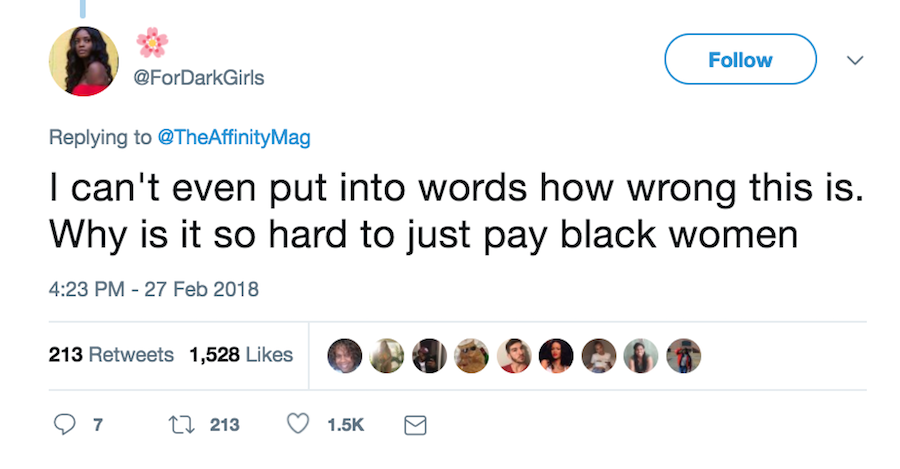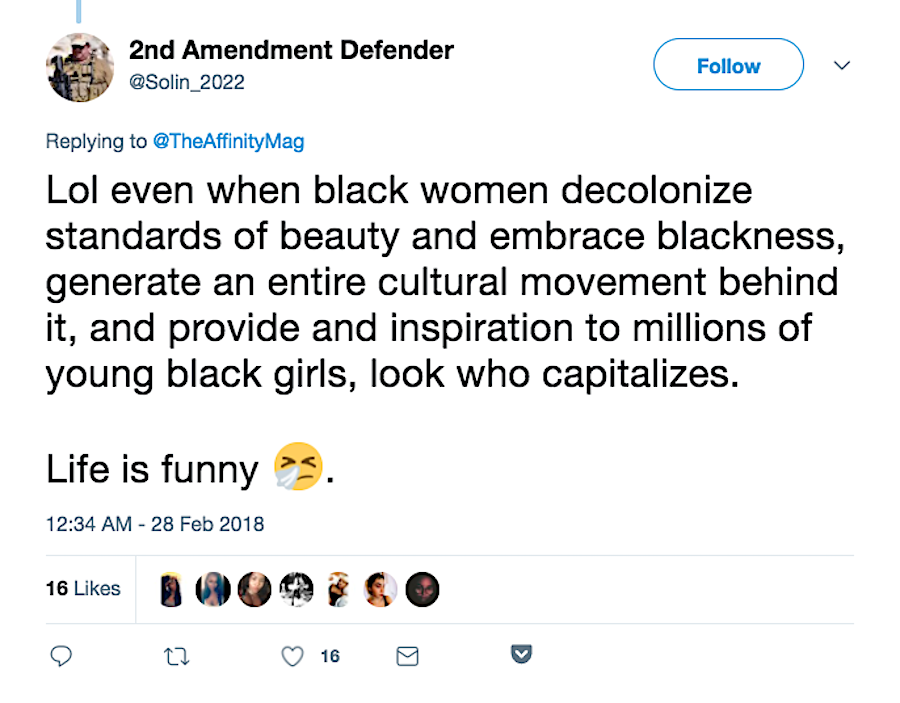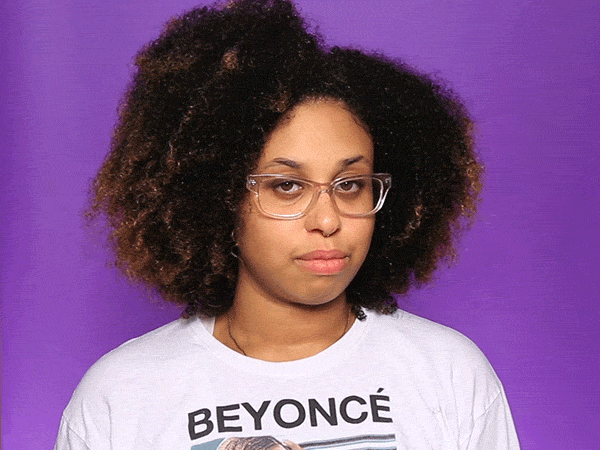In a beauty and fashion industry where dark-skinned Black women are still fighting to be treated equally or just get hired at all, photographer Cameron-James Wilson has created Shudu.
Shudu is the "world's first digital supermodel" — aka a Black Instagram model who is entirely fictional.
Unsurprisingly, Twitter has A LOT of hard feelings about Wilson's Black female creation.
Meet the undeniably stunning Shudu, Wilson's CGI model.
"Basically Shudu is my creation, she’s my art piece that I am working on at the moment," London-based photographer Cameron-James Wilson shared with Harper's Bazaar.
"She is not a real model unfortunately, but she represents a lot of the real models of today. There’s a big kind of movement with dark skin models, so she represents them and is inspired by them."
"Obviously some models like Duckie were definitely big inspirations for her as well," Wilson told the magazine.
One look at Shudu's Instagram page and the Duckie Thot comparison becomes clear.
In this photo, both "models" are wearing SAW-C lipstick ($18, Sephora) by Rihanna's makeup brand Fenty Beauty.
The image of Shudu wearing Fenty Beauty is so striking, even the beauty brand reposted the image of her on its Instagram page.
The difference — and the uncomfortable thing about Shudu — is she comes from Wilson's imagination, while Duckie Thot was hired and paid the way MORE Black models should be.
Real Black women are fighting every day just to matter to the fashion and beauty industries.
Five days ago, the internet was celebrating the fact that Prada hired its first Black model to walk on a runway since Naomi Campbell in 1997.
Many people praised Prada, but I remain unimpressed. The brand gave one dark-skinned model a chance in 1997, then basically said, "screw them," for 21 years. I'm glad Anok Yai is getting her coins, but that ain't celebratory; it's sad AF.
With the abundance of beautiful Black women, why are we still sliding into "first and second to make it" history slots in 2018?
While real Black women wade through that struggle, Wilson has created a fake Black woman who's now amassed 39.2K followers on Instagram — a follower count that would already be earning her some cute checks if she were an actual human with a bank account.
My personal take on Shudu the CGI goddess: Real or not, there is something about a white man calling a Black woman "his creation" that makes me, a real Black woman, feel pretty queasy.

Shudu belongs to Wilson. This fictional — but very real-seeming — Black woman is "his."
Creation and ownership of a Black woman — real or not — by a white man is undeniably horrifying to me. Seeing her naked and adorned in gold, even in the name of art or inclusion, doesn't make me, a *real* dark-skinned Black woman, feel empowered or inspired.
I feel especially strongly since Wilson himself cited the "movement" of dark-skinned Black women in modeling as part of his inspiration, which makes me think he sees Shudu as his capitalization on a trend. Wilson making Shudu to feed his creativity feels fetish-y, in my personal opinion.
Call it overly sensitive, but as a Black person and woman, that perception is my right to have.
Twitter is pulling Wilson's card left and right for concocting this digital Black woman when so many real Black models exist to be photographed and put on the map.

"I can't even put into words how wrong this is. Why is it so hard to just pay Black women?" one person asked.
As Black women are dealing with a greater pay gap than any other group in the world and Black models are still having a hard time getting hired, this question matters.
Some are pointing out that while Wilson feeds his creativity, if Shudu makes any money, he'll be the one ultimately profiting from a Black woman's image.

"Lol even when Black women decolonize standards of beauty and embrace Backness, generate an entire cultural movement behind it, and provide [an] inspiration to millions of young Black girls, look who capitalizes," another Twitter user wrote.
Naturally, there are people who support Wilson's Shudu model and consider her another form of representation.

In response to people questioning why Wilson didn't just hire a real Black model, one fan wrote:
"That’s like saying we shouldn’t make animated movies because it’s taking work away from real actors. I think it’s dope that this guy decided to make the model black and he did a damn good job. Do y’all want equal representation or nah? like which one is it."
Good inquiry.
But it's also important to note that in animated movies, the voices behind cartoon characters (especially Black ones) include Black people who get paid (though certainly, there have been white characters voicing Black cartoons at some point).
Representation is so important because of how it affects and benefits REAL people. In the case of Shudu, who benefits most?
We should also note that CGI models don't "just" serve as representation. Unlike the connection between animated films and live-action films, these fake models are locking in real relationships with real brands. An example is another CGI model named Miquela.
"The icon herself. The mother of all motherships. The one and only @PatMcGrathReal, has honored me as her latest #McGrathMuse!!," a caption on Miquela's Instagram page reads. "I can die now… just make sure I'm wearing my Luxe Trance Lipstick at my funeral."
This Pat McGrath connection seemingly feels real even though Miquela is not.
This blurred line between imagined identities and real business is likely what creates such polarizing reactions to CGI model Shudu, since she represents women who are more marginalized while her creator has a white identity.
For full disclosure, Miquela's creator has not revealed their identity.
In the end, the entire debacle seems to be about what people should do versus what they have a right to do.

It would have been nice if Wilson had used his talent, resources, and white privilege to hire a real Black model as his muse, pay her, and help her grow a 39.2K+ social following that would further help her career.
He didn't, and that was his choice. The photographer can rightfully create whatever he wants to, and likewise, people have a right to deliver their side-eyes. These feelings aren't "hate" as some have dubbed it on Twitter; it's called critical analysis.
Criticism or praise, it's Wilson who gets the publicity and whatever checks come along with it. Meanwhile, Black models continue fighting on.
You decide if you think that's a fortunate situation or not.
RELATED: Women talk about being body-shamed — Subscribe for more!
Subscribe to Revelist on Youtube for a gorgeous life!




